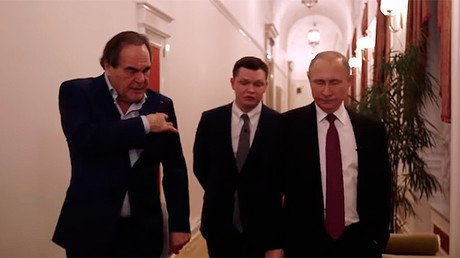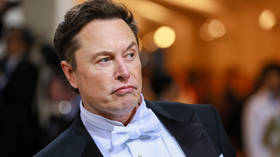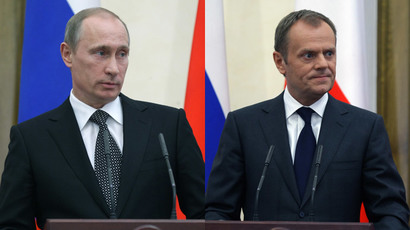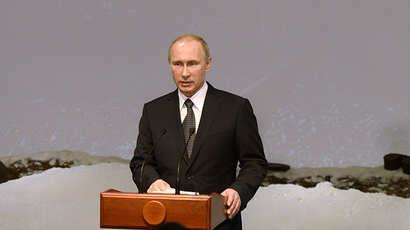Dutch FM admits lying about Putin describing land-grab ambitions in 2006
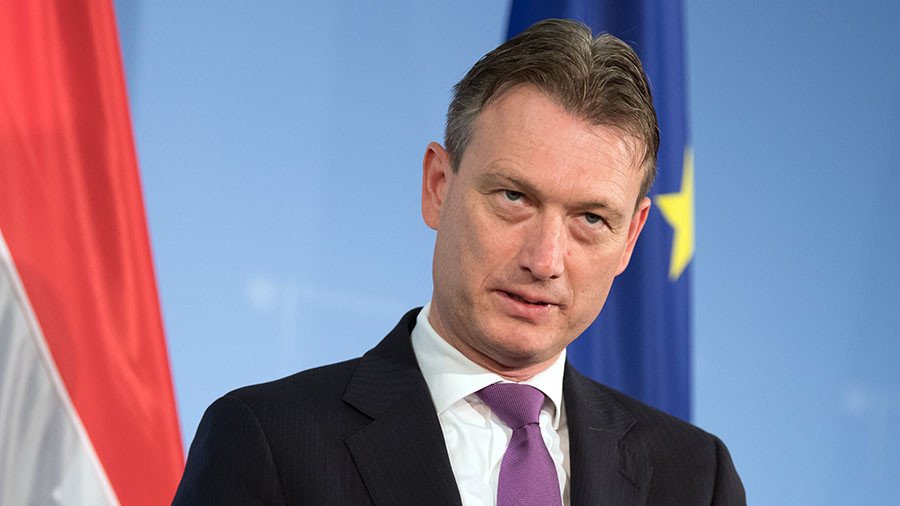
Dutch Foreign Minister Halbe Zijlstra has admitted that he lied when he claimed to have heard President Vladimir Putin describing an ambition to unify Russia, Ukraine, Belarus, the Baltic states and Kazakhstan as a single country.
Zijlstra claimed at a party conference in 2016 that he had overheard Putin outlining the grand plan for a “Greater Russia” in 2006 during a gathering of businessmen. He was working for the oil company, Shell, at the time.
In the original retelling of the story, Zijlstra said he had been in a back room of a dacha (country house) when he heard Putin define “Great Russia” as “Russia, Belarus, Ukraine and the Baltic states,” adding that “Kazakhstan was nice to have.”
The story was questioned by the newspaper Volkskrant, however, which discovered from Zijlstra’s colleagues that he had not been at the 2006 business meeting in Russia, despite being part of the Shell delegation. When confronted about this, the minister acknowledged lying and claimed he was simply trying to protect a source.
“I made the decision that this is an important geopolitical story with serious implications,” he said. “I put myself in the story to make sure that the revelations weren’t about the person who was actually there. Because that could have had implications for him or his company.”
Zijlstra insisted the hearsay of which he spoke was true, but would not name the person from whom he heard it. The newspaper itself says the source was Jeroen van der Veer, who was Shell CEO at the time, citing two informed sources.
Big scandal in The Netherlands right now. On social media, the Dutch FM has become the laughing stock. Pictures like these circling around on twitter with the hashtag #HalbeWasThere. pic.twitter.com/EE6VODPMQ4
— Brenda Stoter Boscolo (@BrendaStoter) February 12, 2018
The revelation comes at an awkward moment for the foreign minister. Zijlstra, who assumed his current office in October 2017, is due to visit Moscow this week to meet with his Russian counterpart, Sergey Lavrov. Geert Wilders’ opposition right-wing Party for Freedom has called for a parliamentary debate about Zijlstra’s integrity before he leaves. Zijlstra told Volkskrant that he informed Prime Minister Mark Rutte about his conduct several weeks ago.
READ MORE: Sikorski U-turn: Polish ex-FM backtracks on scandalous 'divide Ukraine' claim
“Greater Russia” is an amorphous term usually used to describe the historic core of the Russian state, roughly corresponding to the territory of medieval Russia in the 16th century – the beginning of the reign of Ivan the Terrible, who was the first of Russia’s great expansionist rulers. The word “greater” is meant as a description of spiritual significance rather than physical size. The same term was applied to the core territories of some other countries, like Greater Armenia, Greater Walachia or Greater Poland.
